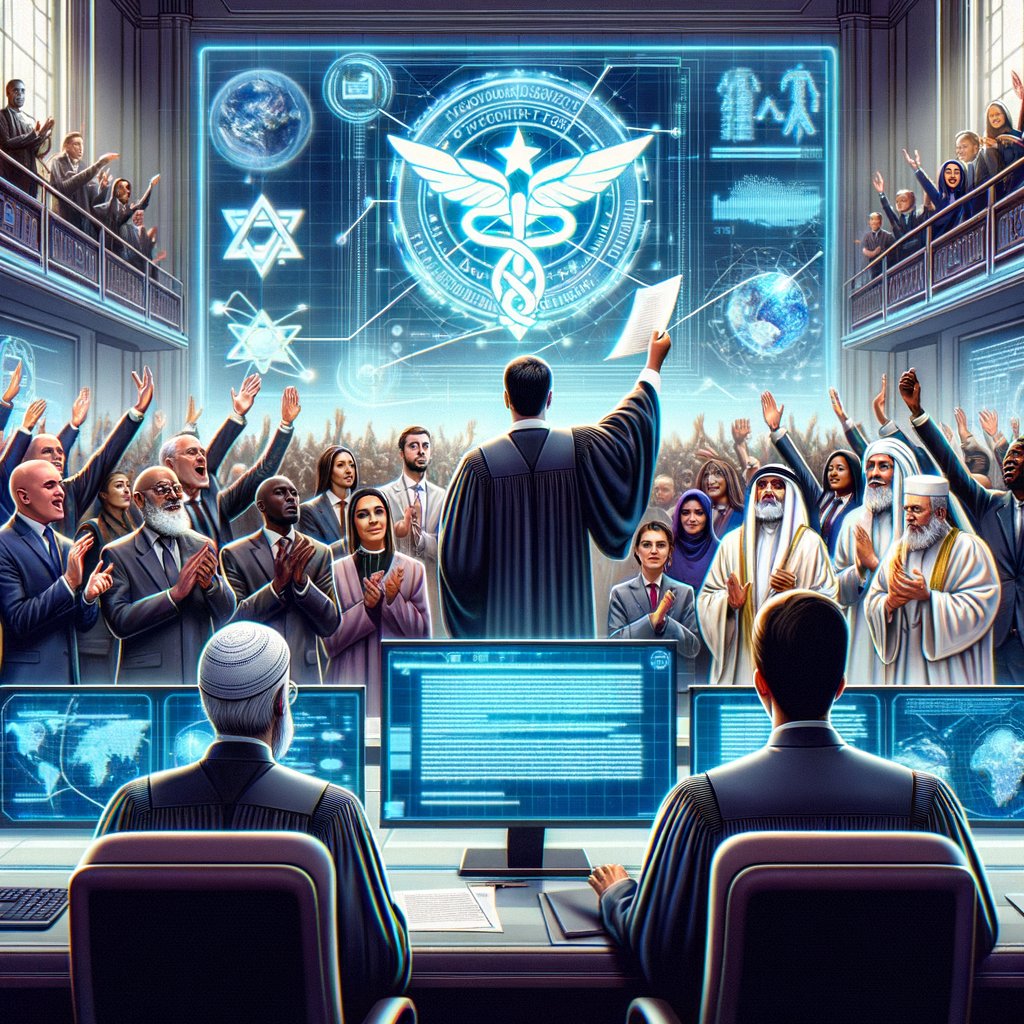Image created by AI
Court Mandates MK Party to Reinstate Expelled Religious Leaders
In a significant ruling that underscores the importance of fair political practices, the Western Cape High Court has instructed the MK Party, spearheaded by former president Jacob Zuma, to reverse its decision to expel key religious leaders who are affiliated with the All African Alliance Movement (AAAM). The court's decision highlights a pivotal moment in South African politics, reflecting on the intricate relationship between religious groups and political entities.
The controversy began when the MK Party, known for its robust backing from various societal quarters, including religious conglomerates, seemingly sidelined prominent figures from the AAAM despite their previous endorsements. Bishop Sophonia Tsekedi, a leading religious figure and the head of the AAAM, who was primed at the top of the MK Party’s candidate list for the upcoming parliamentary elections, found himself inexplicably omitted from the final appointment list after the party won a significant 58 seats.
Additionally, Khethiso Tebe, another prominent candidate from the AAAM who was positioned seventh on the MK Party’s list, was also excluded from the final nominations. This exclusion came as a shock to many within the AAAM and raised questions about the internal dynamics and decision-making processes within the MK Party.
The legal challenge was initiated by the aggrieved parties, leading to a critical examination of the MK Party's electoral and nomination procedures. On December 5th, the court concluded that the MK Party's actions in expelling the applicants and removing their names from the Government Gazette, which lists candidates for the National Assembly and provincial legislatures, were unjust. The court ruled that these actions are to be reviewed and reversed, marking a significant victory for political transparency and fairness.
This court mandate not only reinstates the religious leaders to their rightful positions on the candidate list but also sends a strong message about the role of judiciary in maintaining democracy and ensuring that political entities engage in fair and transparent practices. It underscores the importance of all political parties adhering to democratic principles, especially in the lead-up to critical elections that shape the country’s governance landscape.
As the MK Party grapples with this setback, the eyes of the nation—and indeed, various international observers focused on South African politics—are keenly watching how this decision may affect the party's strategies and alignments ahead of the May 29 elections. The reinstatement of the AAAM leaders is expected to have significant ramifications, potentially influencing voter sentiments and the broader political dynamics within the country.
As South Africa continues on its path of democratic evolution, the role of the judiciary in upholding fair electoral practices and the importance of inclusive political processes remain crucial. This case serves as a reminder of the delicate balance between political aspirations and ethical governance, ensuring that all voices, especially those representing significant societal sectors like religion, are duly recognized and respected.










